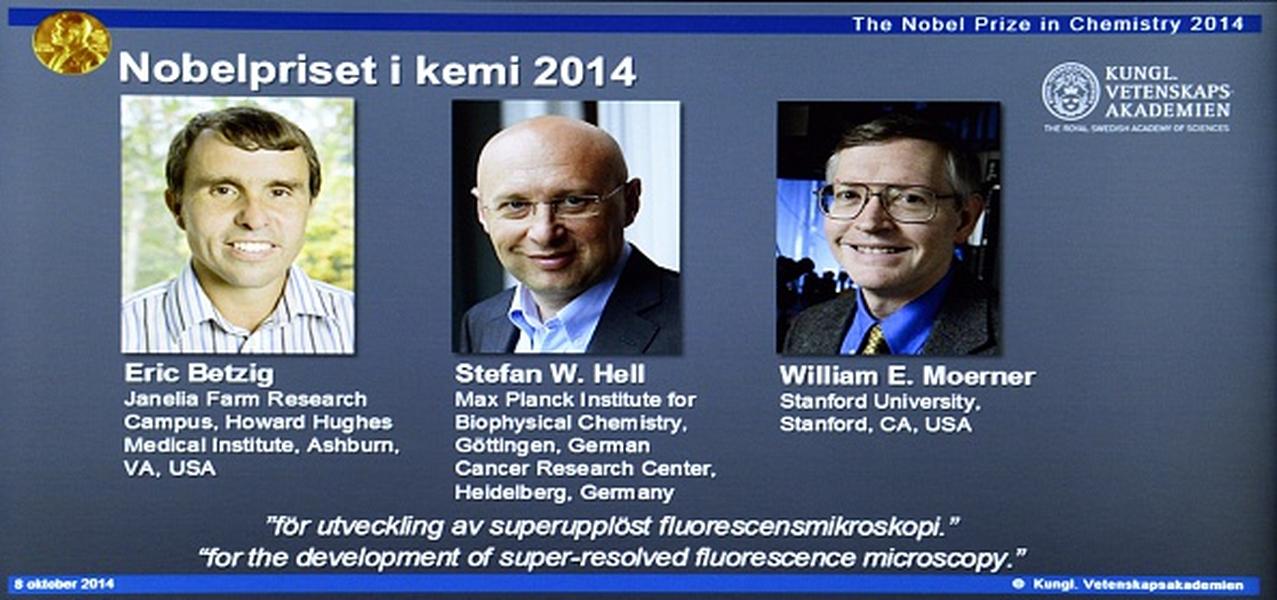Nobel Prize in chemistry awarded for 'groundbreaking' microscope advances


A free daily email with the biggest news stories of the day – and the best features from TheWeek.com
You are now subscribed
Your newsletter sign-up was successful
Two Americans, Eric Betzig and William Moerner, and one German, Stefan Hell, won the Nobel Prize in chemistry on Wednesday. The trio developed "super-resolved fluorescence microscopy," which allowed microscopes to see more details than were previously available with traditional optical microscopes.
The Royal Swedish Academy of Sciences said that the scientists' creation was "groundbreaking" and had "brought optical microscopy into the nanodimension."
The scientists were able to reach a "new dimension" of microscopy with fluorescent molecules, creating a better microscope resolution, The Associated Press reports. Their research "made it possible to study the interplay between molecules inside cells, including the aggregation of disease-related proteins."
The Week
Escape your echo chamber. Get the facts behind the news, plus analysis from multiple perspectives.

Sign up for The Week's Free Newsletters
From our morning news briefing to a weekly Good News Newsletter, get the best of The Week delivered directly to your inbox.
From our morning news briefing to a weekly Good News Newsletter, get the best of The Week delivered directly to your inbox.
The Nobel Prize in literature will be announced Thursday, and the Nobel Peace Prize will be announced Friday. The Nobel Prize in economics will be announced Monday. All of the prizes will be given in ceremonies on Dec. 10. --Meghan DeMaria
Iframe Code
A free daily email with the biggest news stories of the day – and the best features from TheWeek.com
Meghan DeMaria is a staff writer at TheWeek.com. She has previously worked for USA Today and Marie Claire.
